5 Ultracontemporary Artists Redefining the Korean Art Landscape
The dynamic South Korean art scene is quickly becoming one of the most prominent globally, blending rich traditions with cutting-edge innovation. And...
Carlotta Mazzoli 13 January 2025
Everyone wants to save and share great moments with friends. That’s why we take loads of pictures with our cameras and especially with our smartphones; you might call them contemporary digital portraits. Portraiture began centuries ago and was particularly popular during the Renaissance, mostly at the request of the portrayed person. But what about today? Are portraits still being painted in this digital age? Do artists handle their subject as in the past?
Contemporary portraiture is not just a representative image of a certain person, but a more complex work. Besides the person portrayed, there are other elements that play a part in making a portrait of someone. It might give us an insight into the artist himself or we might learn more about the situation or personal history of the portrayed. Are you ready to meet 10 contemporary portraits?
Let’s start with a well-known artist, who has his work exhibited in the Tate Gallery and New York’s Museum of Modern Art (MoMA): John Currin. This American painter is known for his provocative paintings in Renaissance style. Many of the people he paints seem ecstatic or at least have a surreal look in their eyes. He uses realistic brushwork, but if you look closely at the works, you see that he often distorts his models.
The woman portrayed here is Rachel Feinstein, his wife and a sculptor. She is also a model and struts down the catwalk for fashion designer Marc Jacobs. Herein Currin finds his inspiration for this portrait: it is derived from an advertisement for a fur coat. But I must admit that she looks much more glamorous in the ad, and so it seems that she has become quite bored whilst being portrayed by her husband. Or did Currin deliberately depict his wife like this?
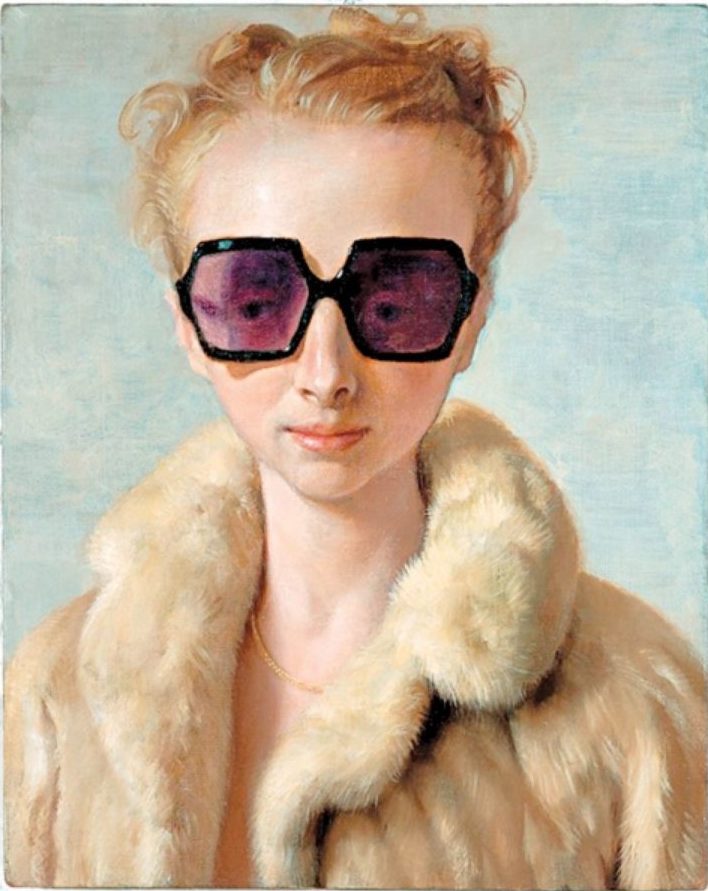
Albert Oehlen already has many self-portraits on his record, from 1983 to the present, using an expressionist style of painting. He was part of the German ‘Neue Wilde,’ the politically-affiliated art movement that stood for ‘Wild Youth,’ trying to undermine the German authorities in the 1980s. That explains his strange self-portraits. To give you an idea, he once portrayed himself with three eyes and two noses, and in another self-portrait with his face upside down but his hair right side up, or again as a one-eyed cyclops. Even if he depicts himself in a more traditional way (with a paintbrush, a horse, or two skulls), he takes unconventional positions. One can say he makes parodies of traditional self-portraits. He certainly is an artist who dares to question himself.
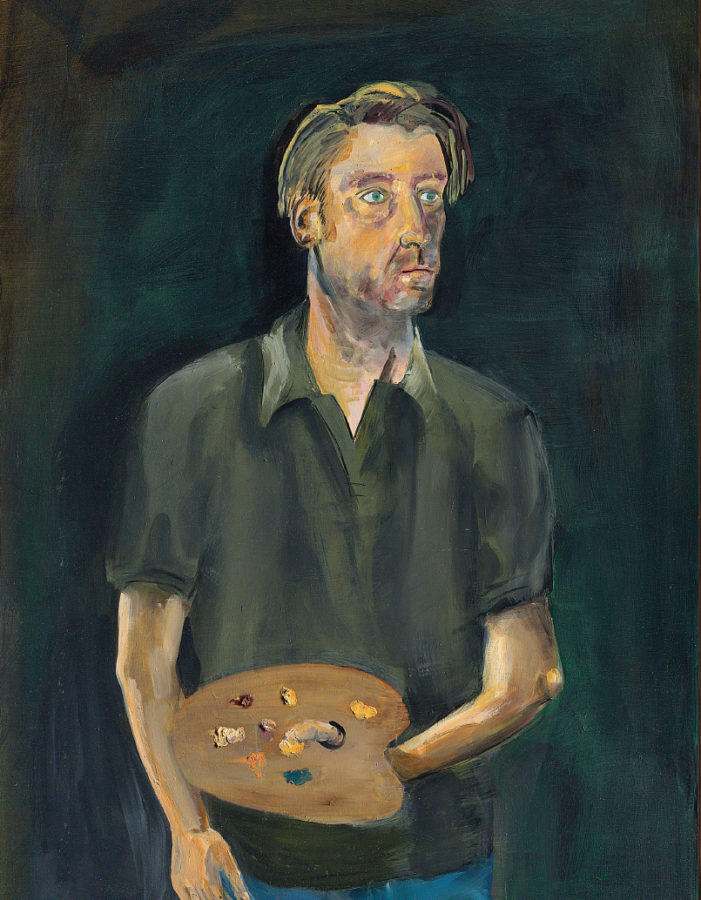
Elizabeth Peyton is an atypical artist who voluntarily limits herself to making contemporary portraits. With her colorful works, she embraces celebrity culture and creates paintings documenting a particular cultural period. Since the late 1990s, she has painted popular musicians such as Kurt Cobain, David Bowie, Eminem, Kanye West, and Noel and Liam Gallagher of the rock band Oasis. In the era of Instagram and Pinterest, it’s quite unusual to see today’s pop artists portrayed in the classic form of painting. I believe that Kanye West is quite proud of his portrait since he allows it to be photographed and posted on social media.
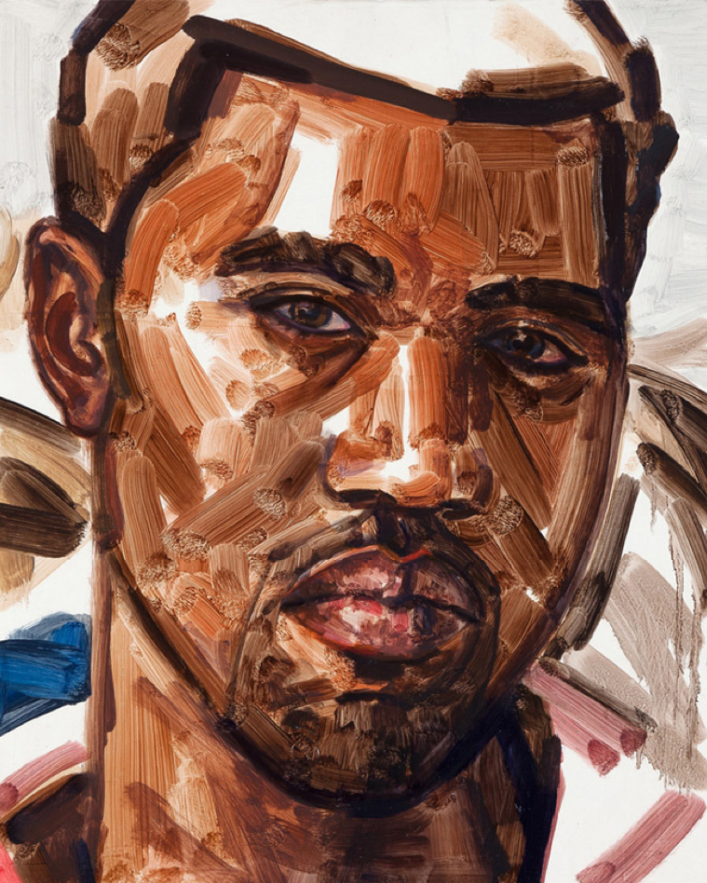
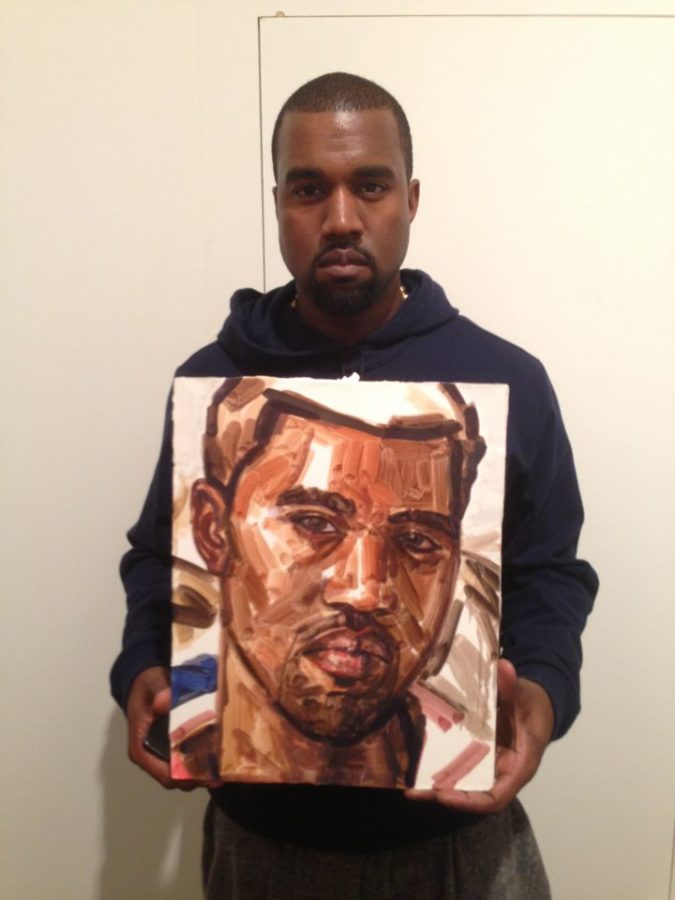
Merlin Carpenter also paints popular culture figures and has made close-ups of Blondie, Amy Winehouse, Kurt Cobain, Audrey Hepburn, and Michael Caine. He is clearly inspired by the prints of Andy Warhol. His poppy portraits resemble Warhol’s monochrome Marilyn Monroes.
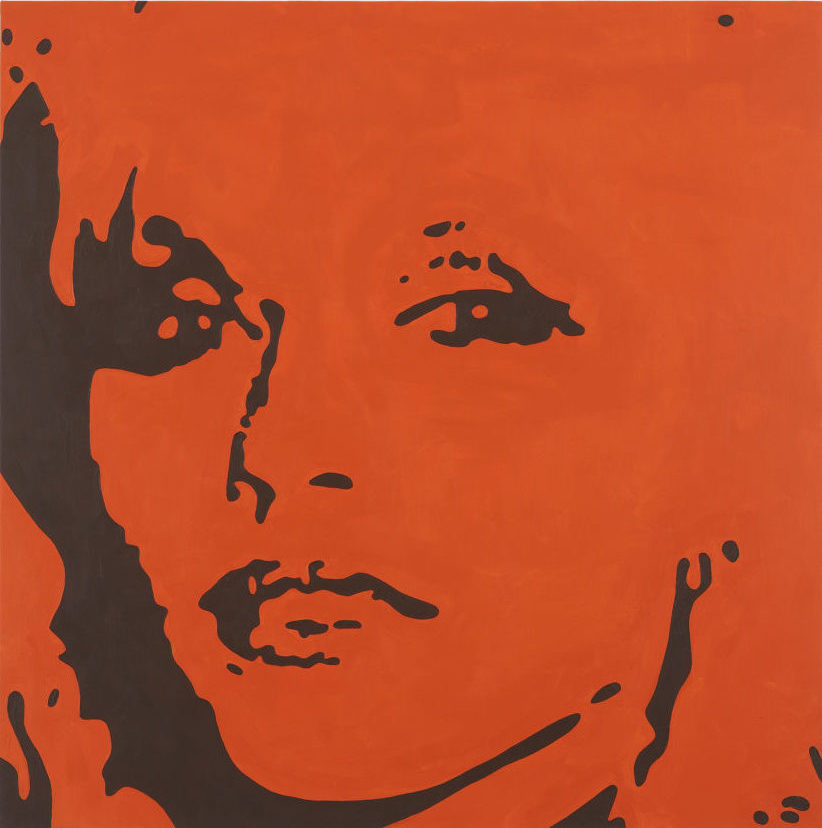
This French painter, born in Paris in 1946, is inspired by mythical characters in literature. To understand his paintings, a certain knowledge of la commedia dell’arte, Don Quixote, and even the Bible or the Kaballah comes in handy. In this self-portrait, he depicted himself as a fool coming straight from the theater stage with a puppet in his hair. I think it’s a strange setup, but on the other hand, it seems like the puppet is whispering inspiration into his ears.
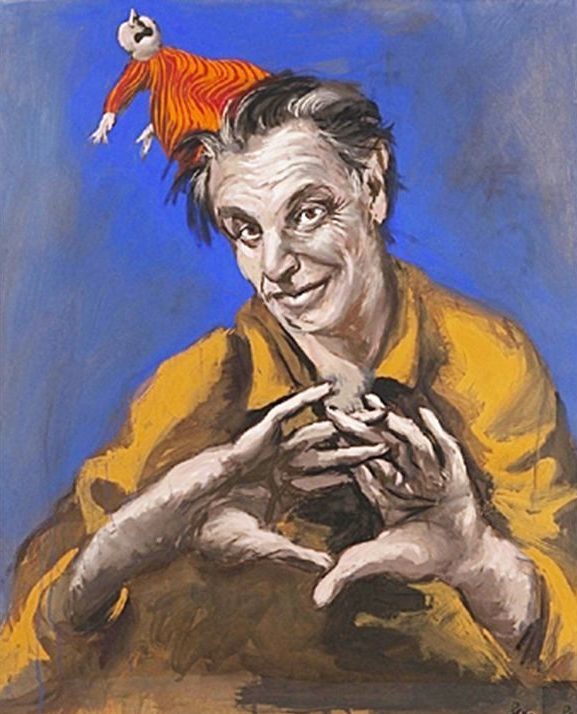
This Polish artist Paulina Ołowska was 13 years old when the Berlin Wall fell. For her series of Eastern Bloc women wearing 1980s-style sweaters, she clearly borrowed stylistic elements from vintage advertisements and communist propaganda posters. The women portrayed have a determined look as if they are convinced of their ideals. Those could be political ideals but also non-political ideals, as indicated by the outdated sweater. A funny wink is never far away in these portraits.
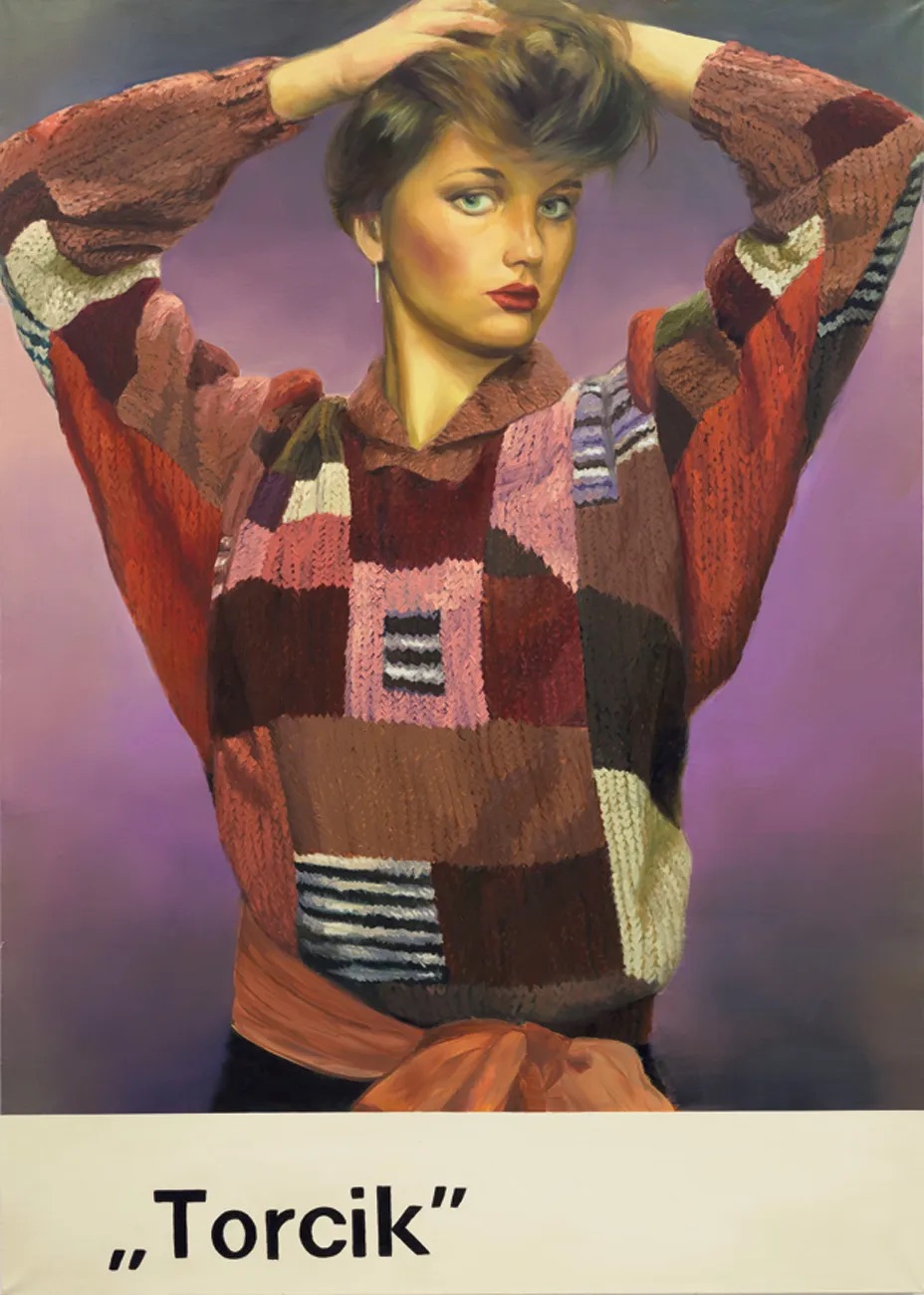
The man portrayed here is King Baudouin I, who reigned over Belgium from 1951 to 1993. During Baudouin’s era, the colony of Belgian Congo became independent, hence the friendly title of this work: Mwana Kitoko means ‘beautiful white man’ in Congolese. Luc Tuymans has painted a series related to the colonial past of Belgium, such as the portrait of Lumumba, who served as the first Prime Minister of the independent Democratic Republic of the Congo. It shows an intense interest of the artist in a turbulent part of his country’s history.
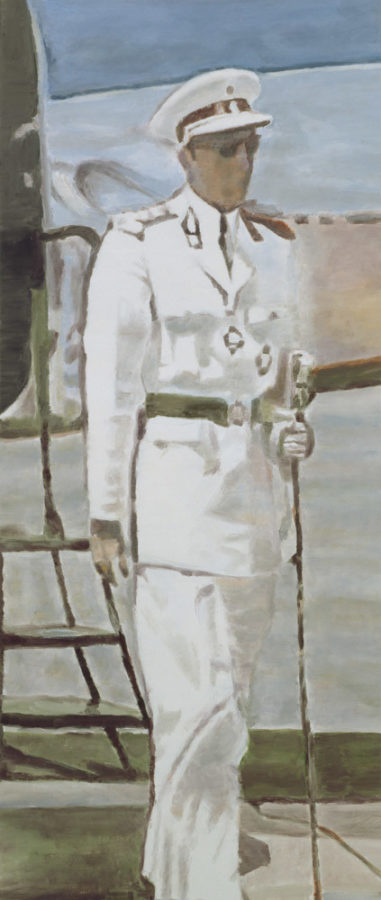
The characters in the paintings of Victor Man are bathed in a nocturnal, mysterious light. Perhaps he inherited this way of painting during his three-year stay in a monastery in Jerusalem, Israel. His way of painting seems to go back to the style of Édouard Manet and Paul Gauguin. In this melancholic self-portrait, he holds a flower between his lips, as if he wants to tell us something without saying it. It seems like a dream image.
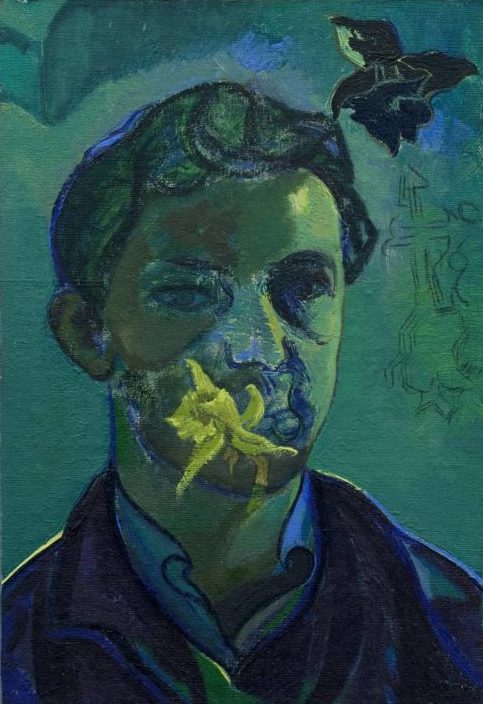
Taylor finds his models very close to his home and depicts his Afro-American family, friends, and acquaintances. You could call him a painter of the everyday man, which matches very well with his style. The naive technique contributes to that vision, but do not let yourself be distracted, because at a later age he obtained a bachelor’s degree from the California Institute for the Arts. Therefore I like to quote him: “I paint everyone, or I try to. I try to capture the moment I am with someone who could be my friend, a neighbor, a celebrity, or a homeless person.”
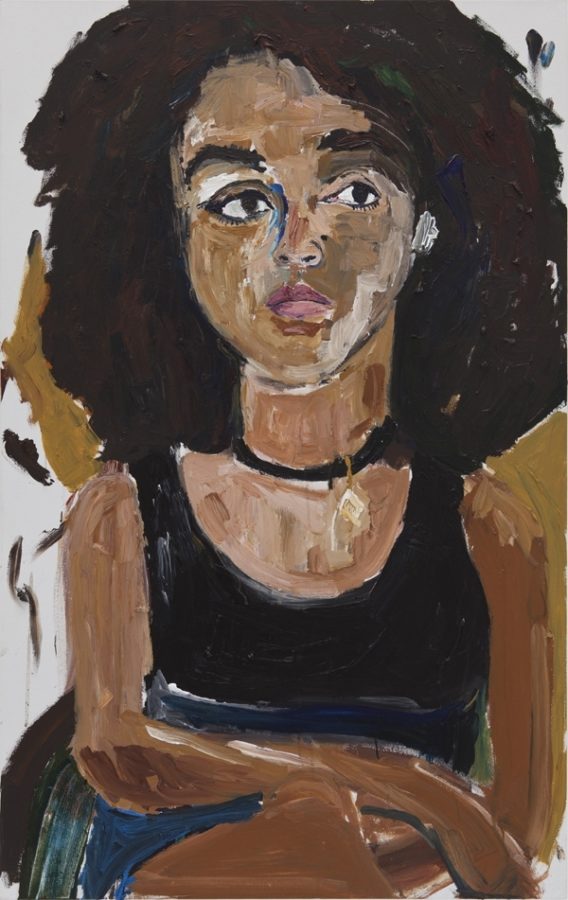
To end this series of contemporary portraits, I thought it would be interesting to show a more abstract work. Avery Singer uses 3D-graphic programs and has experimented with the software Paintbrush before painting her figures on the canvas. The geometric figures in her paintings are halfway between human and robot. They are composed of three-dimensional building blocks and therefore the compositions look very futuristic, but in the same time they refer to the Cubism of Pablo Picasso and Georges Braque, or to the Russian Constructivism of the 1920s. The different layers of tones of gray underline the futuristic character of the works and create a certain depth in the painting. Lee Krasner was one of the pioneers of abstract art. The link with Singer’s work is easily made.
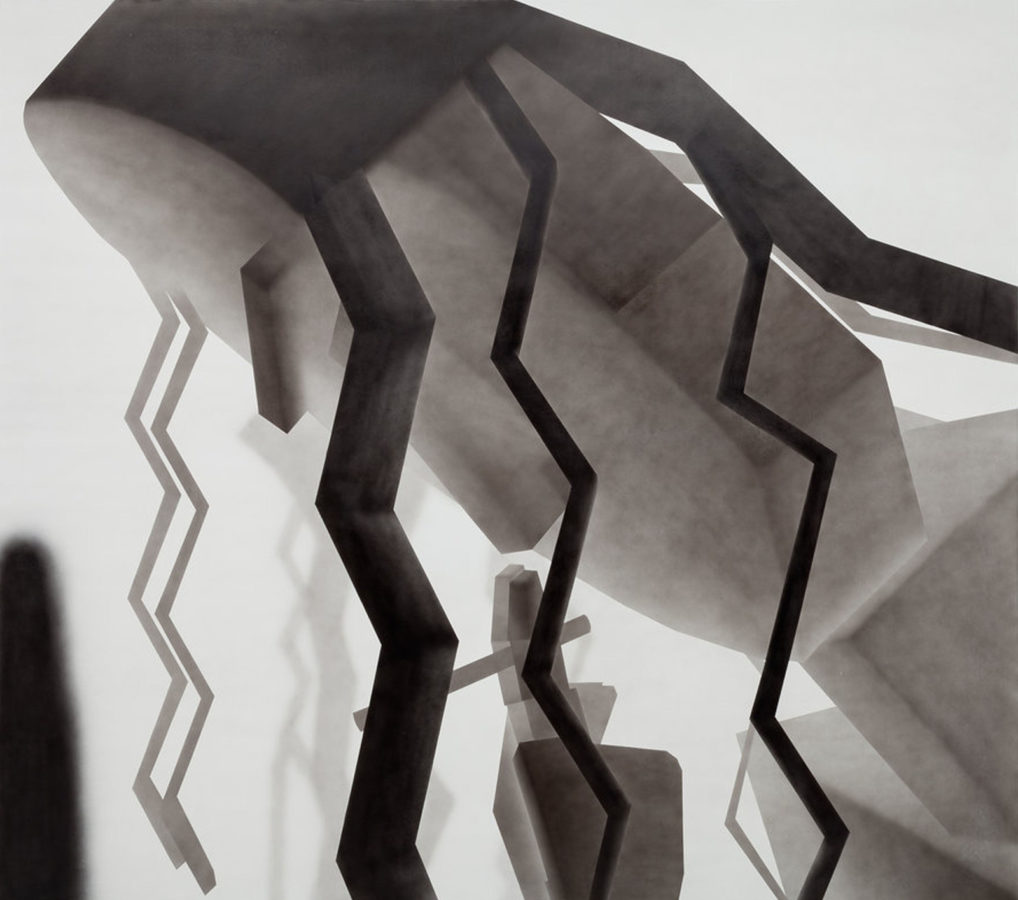
DailyArt Magazine needs your support. Every contribution, however big or small, is very valuable for our future. Thanks to it, we will be able to sustain and grow the Magazine. Thank you for your help!